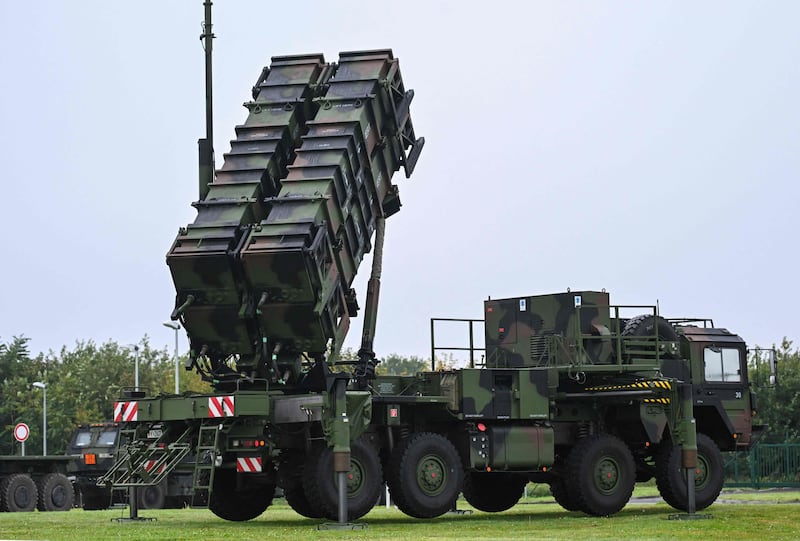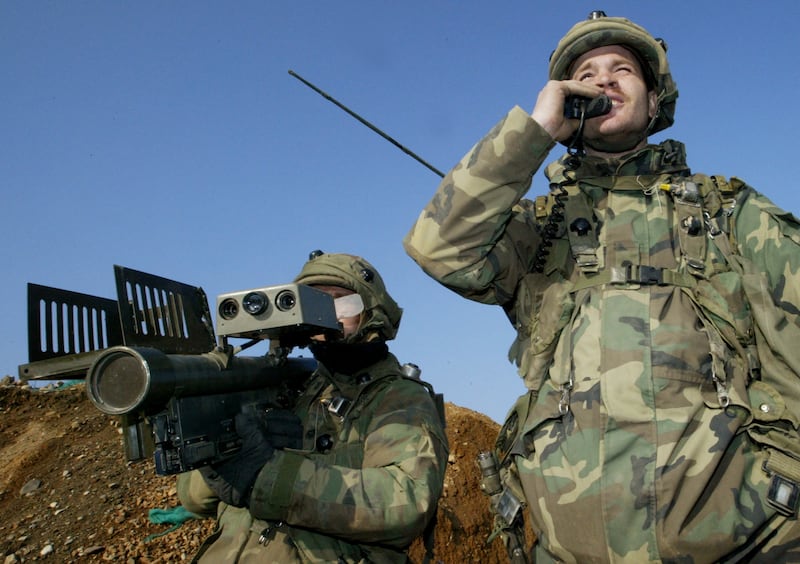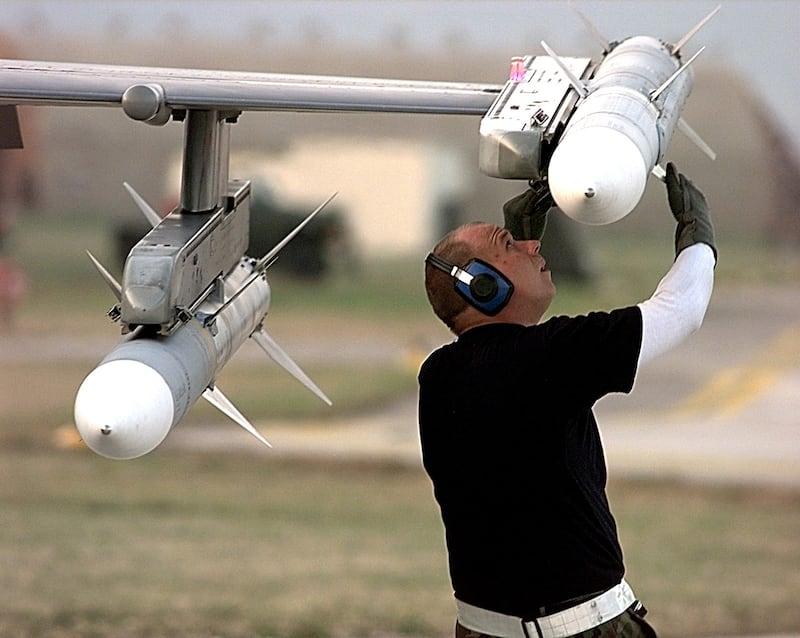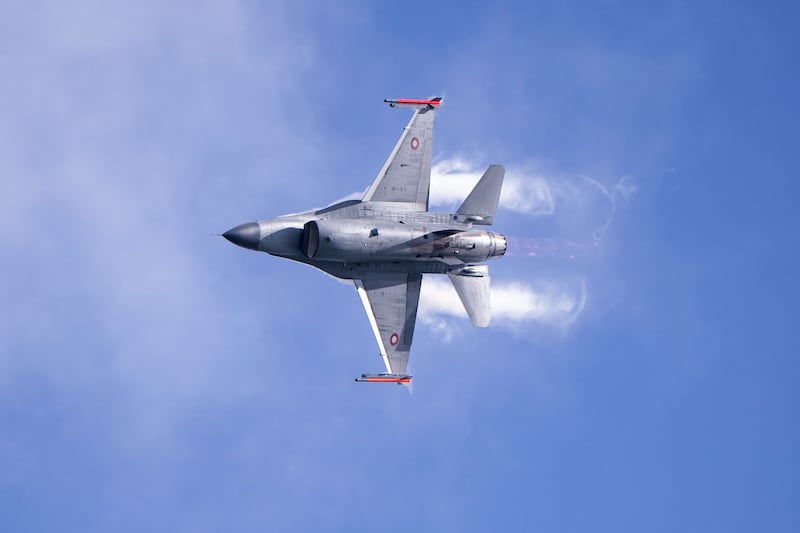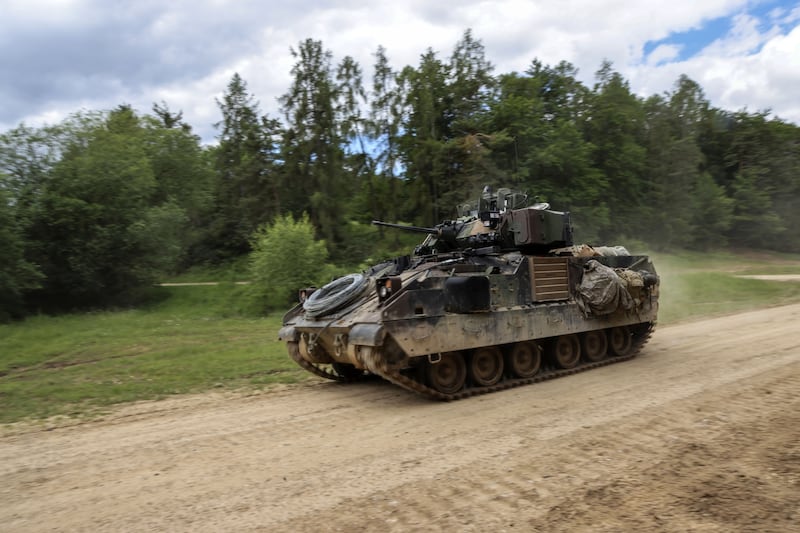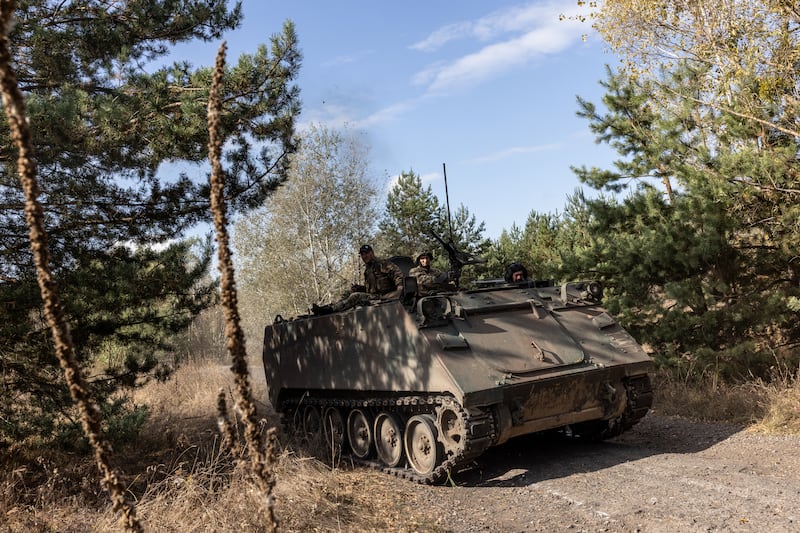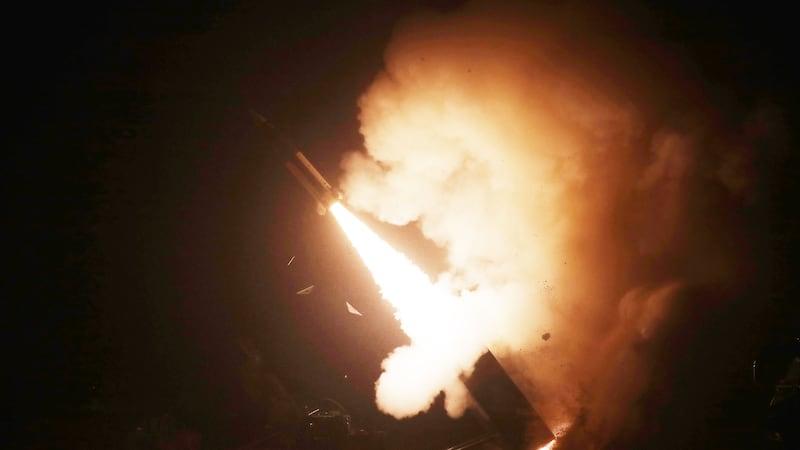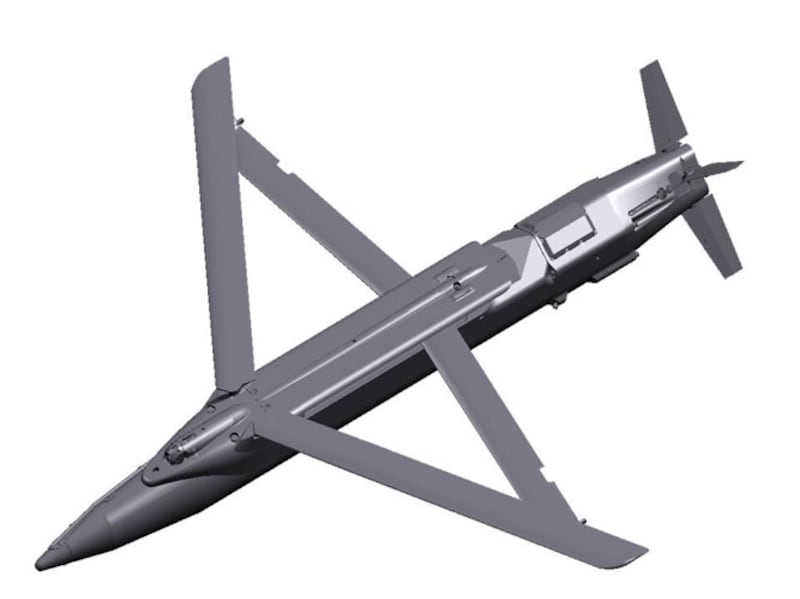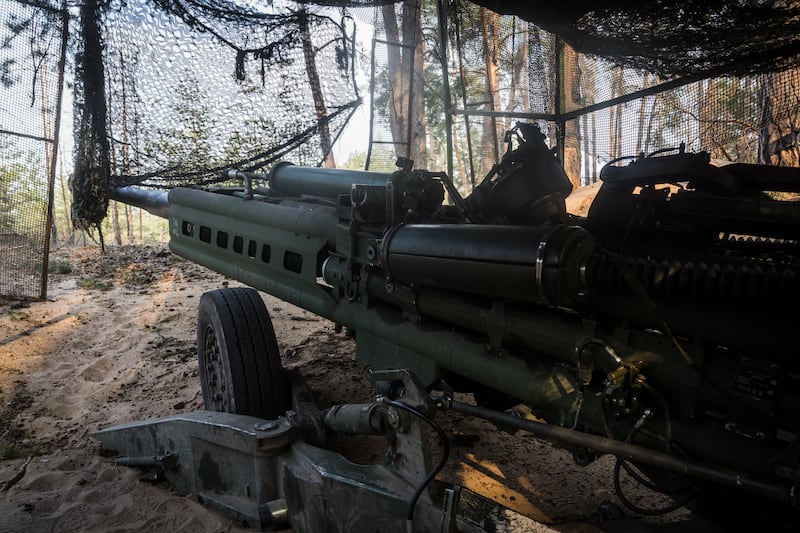The political battle in Washington over funding for Ukraine is, at long last, over, but the chaos-riddled path to secure the $61 billion package for Kyiv's military efforts against Russia has undoubtedly altered the landscape of the war.
While US-supplied military equipment and munitions are being sent to the Ukrainian front lines, President Volodymyr Zelenskyy declared on Friday that the Russian army had “managed to seize the initiative on the battlefield” during Washington's battle over foreign aid funding.
“I’m not a military person to predict what might or might not have happened, but I think it is right to say that more lives could have been saved,” an official from Ukraine's embassy told The National.
A far-right faction of the Republican Party affiliated with presidential front-runner Donald Trump held up passing more than $90 billion in foreign aid funds, a majority of which were intended for Kyiv, for months as it took an increasingly anti-Ukraine stance.
That impasse broke last week in the Senate, and on Friday the Pentagon announced its second aid package since President Joe Biden signed the funds into law. The package included $6 billion for Patriot missiles, ammunition and other weaponry.
The Ukrainian official called those deliveries “important” but noted “it takes some time for new assistance to be delivered”.
And for some Ukrainians, the impact of that delay was keenly felt.
Tetiana Hranchak is a Ukrainian academic who fled her country after Russia's 2022 invasion. Now a visiting professor at Syracuse University's Maxwell School of Citizenship and Public Affairs, she says the delay decreased “trust in the US as a reliable partner”.
“Ukrainians noticed a change in rhetoric and realised that promises might be broken,” Ms Hranchak told The National.

“The positions of our soldiers on the front line and our cities are less protected, which led to irrecoverable losses of human lives. And no amount of aid renewal will bring those lives back, ever.”
The wartime picture grew more dire as aid from Washington withered, and now Ukrainians have even more ground to recover.
“It’s always cheaper to protect and deter than to fight later or to reconstruct,” the embassy official said.
Russian troops have been making steady gains in Ukrainian territory, including near key cities like Avdiivka.
On Sunday, Russian troops seized two villages near the city, and expanded around the rural settlement of Ocheretyne.
Officials in Kyiv have said conditions in the Russian-occupied Donbas region are “very difficult”.
Territorial losses were not the only impacts, with the war having had severe effects on Ukraine's energy infrastructure.
“Taking advantage of the delay in aid and the fact that the Ukrainians could not respond adequately, the Russians intensified their shelling of our power plants, and today Ukraine is forced to resort to blackouts to preserve electricity,” adds Ms Hranchak.
Weapons wanted by Ukraine – in pictures
“Big cities remain without electricity and light, energy that used to be exported is now imported.”
Ukrainian Minister of Energy Herman Halushchenko said at the weekend that energy facilities in southern Dnipropetrovsk and western Ivano-Frankivsk and Lviv had been attacked.
And in a bid to block incoming American support, Russia has been launching air strikes on Ukrainian rail lines, according to reports.
The “one big achievement” of the delay in aid, Ms Hranchak says, was Ukrainians coming to understand “that we have to rely on ourselves”.
“In the six months to March this year, Ukrainians transferred more than $600 million [to support the military], which is almost in 1.5 times more than [the] previous year,” said Ms Hranchak.
“We are infinitely grateful for the help we received, and it will allow Ukraine to resist Russia's aggression for a while longer, but it does not make it possible to solve the problem of war.”
This week, officials from the State Department, Department of Defence and the White House are speaking with their Ukrainian counterparts “to continue negotiations critical to long-term bilateral security arrangements”, a release from the State Department said.


